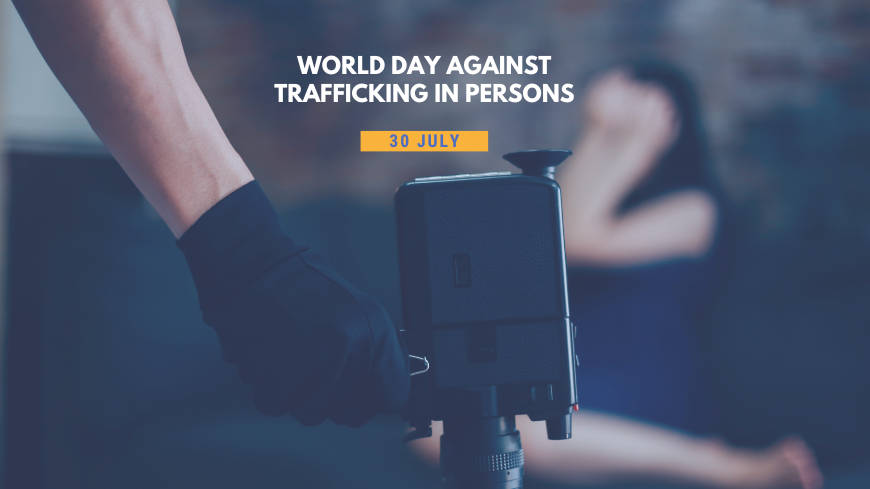30 July marks the World Day against Trafficking in Persons. In a statement released ahead of this International Day, the Inter-Agency Coordination Group against Trafficking in Persons (ICAT) highlighted the need to address the vulnerability of targets to trafficking in persons, to ensure effective prosecution of perpetrators, and to provide human rights-based protection and support for trafficked persons. ICAT’s concerns that responses to human trafficking are significantly lagging, despite estimates suggesting an increase in the number of people in various situations of exploitation, are echoed by the Council of Europe Group of Experts on Action against Trafficking in Human Beings (GRETA).
“These concerns are regularly raised in GRETA’s reports, which highlight the low rate of prosecutions and convictions for trafficking in human beings, the lack of effective access to compensation for victims of trafficking, as well as the challenges posed by the increasing use of information and communication technologies,” said GRETA President Helga Gayer, calling on the 48 States Parties to the Council of Europe Anti-Trafficking Convention to maintain their focus on these issues and to strengthen resources to curb this scourge.
More recently, in the context of Russia’s war of aggression against Ukraine, there is a “high and imminent threat” of trafficking in human beings (EU Common Anti-Trafficking Plan, 2022), given that the war increases people’s vulnerability to trafficking inside Ukraine, and many adults and children flee the country unaccompanied and without access to reliable information.*
In this regard, the Convention on Cybercrime of the Council of Europe (Convention on Cybercrime) and its Second Additional Protocol are standard-setting international instruments that equip States with the necessary legal frameworks for investigating and prosecuting technology-facilitated trafficking in human beings. The Convention on Cybercrime contains procedural provisions on collection of data that could constitute essential electronic evidence in such offences, as well as provisions on international co-operation, such as mutual legal assistance, spontaneous information sharing, and 24/7 contact points.
Furthermore, the Second Additional Protocol to the Convention on Cybercrime enhances international co-operation through direct co-operation with providers and entities in other Parties, expedited disclosure of electronic evidence between authorities, and emergency mutual assistance.
*In May 2023, through Resolution CM/Res(2023)3, the Council of Europe established an Enlarged Partial Agreement on the Register of Damage caused by the aggression of the Russian Federation against Ukraine. The register shall serve as a record of claims and evidence of damage, including electronic evidence, by Russia’s internationally wrongful acts in or against Ukraine.
World Day against Trafficking in Persons
Convention on Cybercrime of the Council of Europe
Second Additional Protocol to the Convention on Cybercrime of the Council of Europe
Council of Europe Convention on Action Against Trafficking in Human Beings
GRETA's Study on Online and Technology-Facilitated Trafficking in Human Beings, 2022



